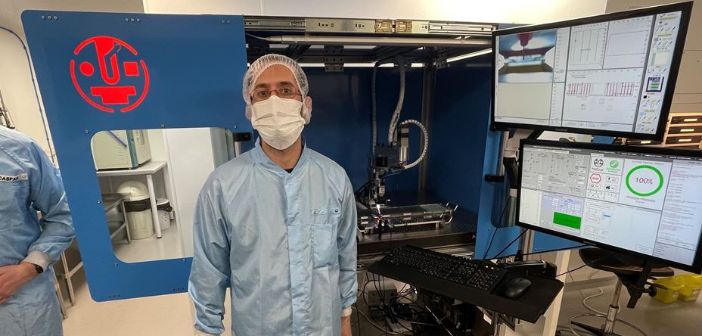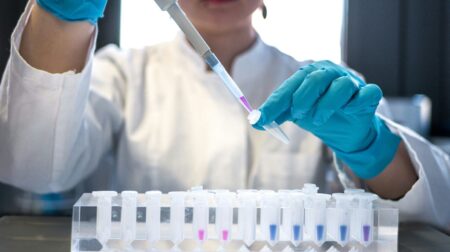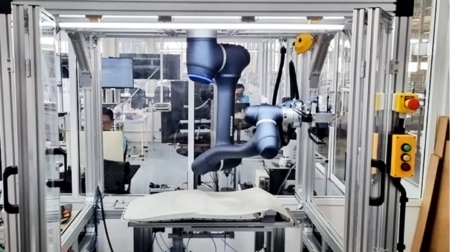Researchers from the University of the West of Scotland (UWS) have partnered with Liverpool-based Helia Photonics to develop a robotic system which could ‘revolutionise’ the manufacturing of key components used in a range of applications including telecoms, medical diagnostics, vision systems for self-driving vehicles, aviation, space and forensic science.
According to the collaboration, the HelBot system is a world-first in terms of mechanical precision and performance.
The components – laser diodes – are manufactured in wafer form, then separated into bars which must be coated to increase performance and lifetime. The bars are processed in batches having been orientated by hand, which results in breakages and loss – the expensive bars are thinner than a human hair and extremely delicate, making them susceptible to breakage from manual handling.
Identifying the opportunity to improve the process using robotics, Helia Photonics – which specialises in the manufacturing of thin film optical coatings – approached UWS to collaborate through a Knowledge Transfer Partnership (KTP), a programme from Innovate UK.
Helia Photonic has reported that the development of this new system has transformed production of the components, with yields increasing by almost 2,000%, and production time decreasing by 4,000%.
Professor Milan Radosavljevic, vice-principal of research, innovation and engagement at UWS, said: “It’s fantastic to see the KTP project deliver significant increased profitability for Helia Photonics.
“HelBot is a pioneering system and is testament to the incredible skills that Knowledge Transfer Partnerships pair together – joining up academia and industry to provide innovative solutions to global problems.”
The project received the highest grade of ‘Outstanding’ by the independent KTP Grading Panel. Subsequently, KTP associate, Dr Daniel Melia (pictured above), has been nominated in the ‘Future Innovator’ category of the upcoming Scottish Knowledge Exchange Awards, which are due to be held in March.
Dr Stuart Mckay, senior KTP Manager at UWS, said: “I’m in awe of what the team achieved. The level of productivity enhancement achieved represent a step-change for the business and photonics sector. UWS’s KTP programme continues to blaze a trail in terms of innovation, and this project is no exception.”
KTPs are a flagship programme from Innovate UK and form a collaboration between a business, an academic institution and a graduate. The graduate is employed by the academic institution as a ‘KTP Associate’ who works full-time at the business involved, under the guidance of an academic team. This three-way partnership aims to create strong ties between industry and academia and helps to deliver solutions to real-world problems.








